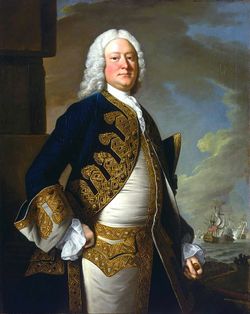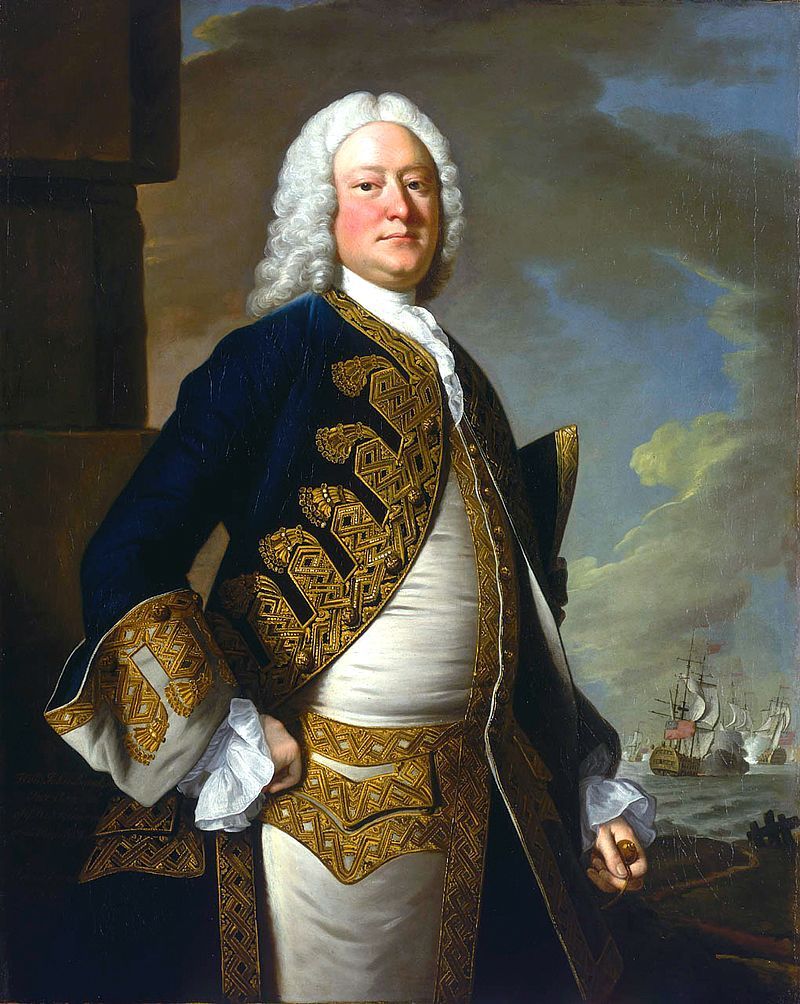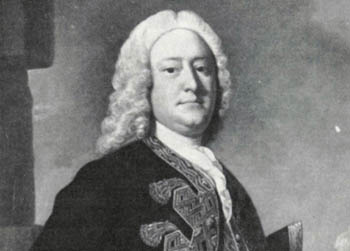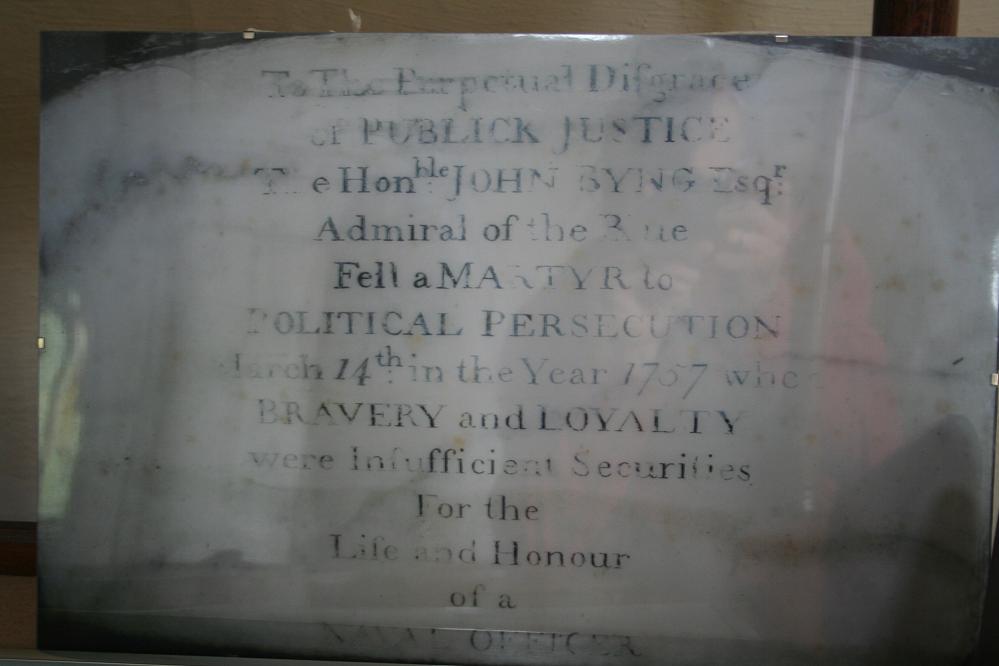Fort St. Philip fell on June 29, which caused public outcry against the Government. To protect themselves, the Government decided to make Byng the scapegoat. He was charged with "failing to do his utmost" to relieve the garrison and defeat the enemy. He was tried, court-martialed and found guilty. The automatic penalty was death, though it was recommended that the Lords of the Admiralty ask King George II for clemency. The king did not exercise the royal perogative and Byng was executed by firing squad on the deck of the Monarch, anchored in Portsmouth harbor. Byng's controversial execution has been condemned by historians. As recently as 2007, descendants of Byng have unsuccessfully petitioned the British Ministry of Defence for a posthumous pardon. The inscription on his grave in All Saints Church in Southill, reads:
To the perpetual Disgrace
of PUBLICK JUSTICE
The Honble JOHN BYNG Esqr
Admiral of the Blue
Fell a MARTYR to
POLITICAL PERSECUTION
March 14th in the year 1757 when
BRAVERY and LOYALTY
were insufficinet Securities
For the
Life and Honour
of a
NAVAL OFFICER
Fort St. Philip fell on June 29, which caused public outcry against the Government. To protect themselves, the Government decided to make Byng the scapegoat. He was charged with "failing to do his utmost" to relieve the garrison and defeat the enemy. He was tried, court-martialed and found guilty. The automatic penalty was death, though it was recommended that the Lords of the Admiralty ask King George II for clemency. The king did not exercise the royal perogative and Byng was executed by firing squad on the deck of the Monarch, anchored in Portsmouth harbor. Byng's controversial execution has been condemned by historians. As recently as 2007, descendants of Byng have unsuccessfully petitioned the British Ministry of Defence for a posthumous pardon. The inscription on his grave in All Saints Church in Southill, reads:
To the perpetual Disgrace
of PUBLICK JUSTICE
The Honble JOHN BYNG Esqr
Admiral of the Blue
Fell a MARTYR to
POLITICAL PERSECUTION
March 14th in the year 1757 when
BRAVERY and LOYALTY
were insufficinet Securities
For the
Life and Honour
of a
NAVAL OFFICER
Family Members
Advertisement
Records on Ancestry
Sponsored by Ancestry
Advertisement









